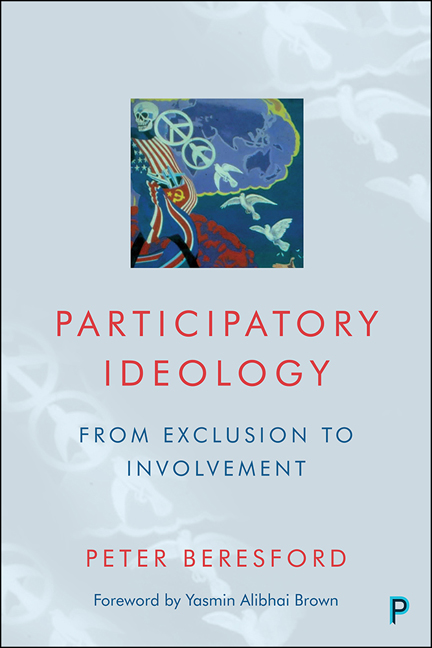9 - Conclusion: reclaiming ideology
Published online by Cambridge University Press: 21 December 2021
Summary
The teacher is of course an artist, but being an artist does not mean that he or she can make the profile, can shape the students. What the educator does in teaching is to make it possible for the students to become themselves.
Paulo Freire, We Make the Road by Walking: Conversations on Education and Social Change, quoted in Bell et al, 1990A straightforward argument underpins and runs through this book. Put simply, the suggestion is that the best way to develop ideas about how to promote equality and freedom is to be involved in developing those ideas together. The only way we are likely to achieve democratic goals (ideology) is through democratic means (participation). To have the desired effect, we must use the same method, that is, democratic participation. We must do it together, equally and inclusively. If we don’t, if we follow the old exclusionary ways, the result is again likely to be exclusionary ideology. Ideology in which we don't have an equal involvement is invariably problematic because it cannot include and reflect all our interests, experience, knowledges and perspectives. How can it adequately address all our rights, responsibilities and entitlements? It must privilege some, inevitably at the expense of others.
Yet in our exploration of political ideology here, what has emerged is that generally speaking, few of us have any real say in the ideologies that operate on and shape us and our lives. This can be as true of counterideologies challenging those that oppress us as of the latter themselves. Different ideological perspectives are wielded by humans to explain, justify and legitimise a political or social order. Ideologies are essentially about power and most of us have little say in them, however liberatory their rhetoric and claimed aims may be. Much of the 20th century was taken up with combating the destructive effects of such supposedly revolutionary ideologies. Arguably we are still living with the consequences.
Regaining control of our lives
Most of us know the basics of what we want in our life. Many things influence these; the times and society we live in; our position in these and our idiosyncratic personal hopes and ambitions.
- Type
- Chapter
- Information
- Participatory IdeologyFrom Exclusion to Involvement, pp. 133 - 140Publisher: Bristol University PressPrint publication year: 2021



